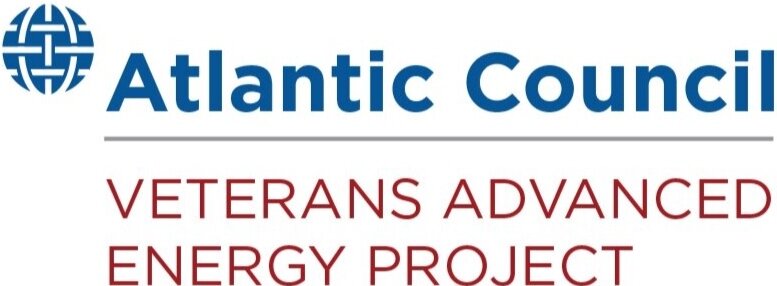Veterans in Advanced Energy Profile: Kevin Booher
/Kevin Booher, a 2021-2022 Veterans advanced energy fellow
Kevin Booher, a 2021-2022 Veterans Advanced Energy Fellow, served as a Marine Corps combat engineer in Iraq and Afghanistan supporting city security and soldier safety. After the military, he was drawn to an energy career by the challenge of climate change. He is most excited about investments in new technology but concerned whether countries can come together for global solutions while maintaining equitable opportunity for economic growth. As told to Madalin How.
Why did you join the military and what was your role?
Growing up in the in the ‘90s, I was exposed to the Rwandan and Bosnian genocides and understood the impact that military service can have on the world. Military service gives you an opportunity to focus on work that has an impact. On a more personal level, my brother and I both attended the US Naval Academy, so I had that additional exposure. I joined the Marine Corps after graduation.
In the Marines, I was a combat engineer supporting various infantry units. I served in two deployments overseas—I went to Iraq in 2008 and Afghanistan in 2009. In Iraq, my work was unique because it centered on city development, where I dealt a lot with city security in the area for the local population, local government, Iraqi police, and Marines. We spent a lot of time on traffic planning, construction, and opening and closing various police stations as the security in the city improved. In Afghanistan, it was much more kinetic, and I directed a route clearance company in a new area where US service members had not been as active in the years leading up to that time.
How did the military influence your career trajectory into energy?
My career trajectory in energy started during my time as an undergraduate at the US Naval Academy. I majored in Physics and did research on lithium battery material development. That served as my introduction to energy, and as I went to grad school at Case Western Reserve University directly after undergrad, I knew that I needed to get more into the energy space. I was particularly motivated to pursue work in the energy transition when I saw Dr. Richard Smalley give his “Our Energy Challenge” talk.
What are you most excited about in advanced energy developments, and what are you most concerned about?
For the first time in my career, I am not working in the public or non-profit sector, so I am most excited and amazed to see the investment opportunities in the energy sector. The energy transition relies on investment in advanced and innovative technology. There is impactful investment all around which is promising for our future. On the flip side, I am concerned if we can come together as a global economy for a successful energy transition. Climate change is the single most important issue of our generation. It is overarching and crosscutting, so it is essential for all of mankind to work together. The pandemic has exposed the fault lines and the lack of ability to address big challenges, when the impacts to our own lives are not directly and immediately visible, and we cannot see the immediate benefit of any sacrifice or additional effort. It is now more important than ever for us to realize that the way we treat the planet where we live has a larger effect on the world as a whole since climate injustice is becoming more prominent every day.
Why is energy important to US national security?
Our current world order has made the United States a global leader, but not every country has had the luxury of development and consistently improving living standards. The United States has been riding the wave for years but must work to maintain such a position and must work to allow citizens of other countries the same opportunities. It is imperative for global leaders to create a system where people have an opportunity to improve living standards with a focus on sustainable development. Instability in the world order would also negatively impact the United States even if we think far off issues do not impact us at home.
Do you have advice you would like to share with other veterans?
My advice to other veterans is to have a plan in place before you leave the military, and even better, don’t limit yourself to only one plan. The military has direct and well-established paths, but now you have to create your own path. It is important to be ok with the uncertainty. Get into the flow of finding what's out there and find the balance between your interests by industry, geography, and function. Most of all, get exposure and connect with people you know—be intentional about the connections you foster. For veterans looking to go into the energy space, I cannot stress enough how this is a wonderful sector to go into because you feel connected to a mission. For example, with distributed energy generation expanding, there is a great opportunity to jump into that arena and to help people find energy independence. There are so many opportunities in this space, and I always recommend that transitioning veterans consider the industry.
What are you most looking forward to about the Veterans Advanced Energy Fellowship?
This fellowship has selected a great cross section of people from a variety of areas of the industry and I am excited to meet them all. I love the policy angle of the program, and it has inspired great conversations about the potential opportunities and impacts of the energy transition. Everyone has a unique experience, and I hope we can work together to give back to the veterans and to create a stronger community within the industry.




